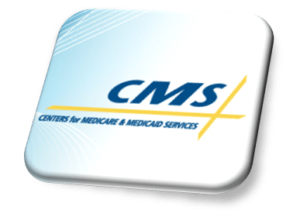 Earlier this month, the Centers for Medicare and Medicaid Services (CMS) released an interim final rule prohibiting healthcare providers from steering eligible patients away from those government programs and toward private insurance on the Affordable Care Act (ACA) exchanges. Insurers claim that this occurs when providers seek to unjustly bill for services at higher rates.
Earlier this month, the Centers for Medicare and Medicaid Services (CMS) released an interim final rule prohibiting healthcare providers from steering eligible patients away from those government programs and toward private insurance on the Affordable Care Act (ACA) exchanges. Insurers claim that this occurs when providers seek to unjustly bill for services at higher rates.
Insurer files suit against dialysis treatment chain
The rule addresses dialysis centers in particular. Last summer UnitedHealth Group filed suit against American Renal Associates, alleging that the publicly traded dialysis company convinced Medicare- and Medicaid-eligible patients to switch to UnitedHealthcare policies instead.
The insurer further claimed that the patients’ private policy premiums were paid by a not-for-profit patient assistance group subsidized by dialysis facilities (the American Kidney Fund), and argued that American Renal Associates violated anti-kickback laws when it “earmarked” donations to the fund for private insurance premiums.
CMS requires patients to be thoroughly informed of healthcare options
CMS’s new rule states that dialysis centers set up to assist patients in paying for private insurance coverage (whether via charities or more directly) must, in writing, clearly and transparently inform patients about the private plans offered in their area and how those plans compare to Medicare or Medicaid.
Further, patients must be made aware that some private plans fall short of covering all that the government program would; for instance, medical expenses associated with living organ donors. In addition, the required notices will need to reveal how much of the private insurance premium would be offset by the dialysis center or affiliated organization, as well as the difference between reimbursement rates to the center from private insurers versus other payers.
In the interest of preserving continuity of patient care, it will be the responsibility of the dialysis center to make contact with a private insurer for the purposes of verifying that the plan will allow third-party subsidies for the entirety of a calendar year.
CMS notes individual plans “particularly prone to abuse”
The CMS states in the rule: “We believe these individual market premium payments are particularly prone to abuse because they are so closely tied to the type of coverage an individual selects.”
In August, the CMS requested information from the public about providers and organizations that might have been engaged in steering Medicare- or Medicaid-eligible individuals toward private plans. Healthcare insurers had been excoriating some organizations for weakening the ACA exchanges by helping “high-cost” patients enroll in them instead of being covered under a government program for which they were eligible.
At that time, acting CMS Administrator Andy Slavitt had this to say in a statement: “We are concerned about reports that some organizations may be engaging in enrollment activities that put their profit margins ahead of their patients’ needs. These actions can limit benefits for those who need them, potentially result in greater costs to patients, and ultimately increase the cost of marketplace coverage for everyone.”
UnitedHealth Group is not alone in deciding to severely limit participation in ACA exchanges going forward. Aetna has similarly dramatically curtailed its marketplace plans. Last summer Aetna CEO Mark Bertolini partly attributed the insurer’s $300 million ACA loss to specialty pharmacy costs spiked by “third parties paying premiums for special interest groups.”
A high cost of compliance for dialysis organizations
The CMS rule goes into effect on January 14th and will impact over 6,000 dialysis centers throughout the country. According to CMS estimates, the facilities in total will spend around $700 million between 2017 and 2026 in administrative expenses in complying with the rule.
For more information/questions regarding any legal matters, please email [email protected] or call 310.203.2800.